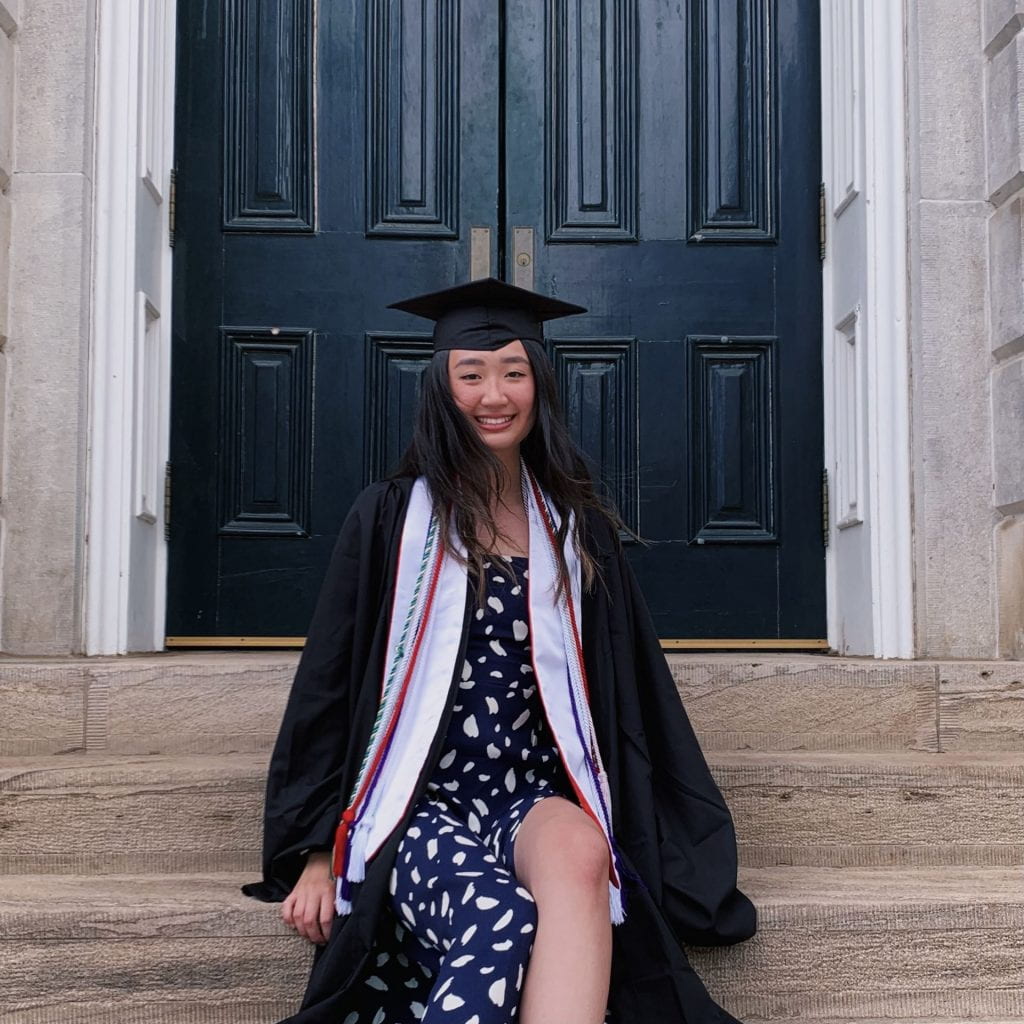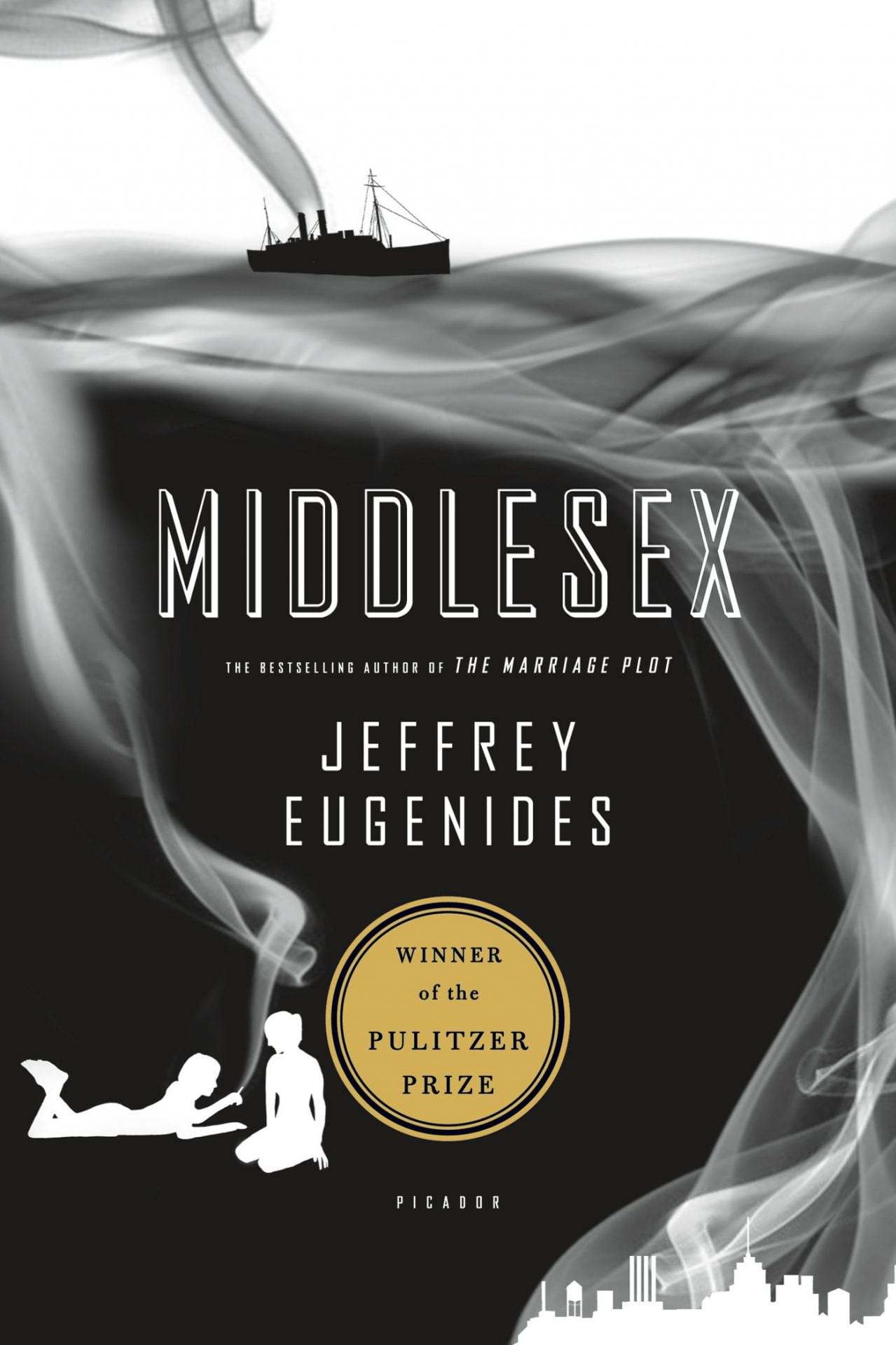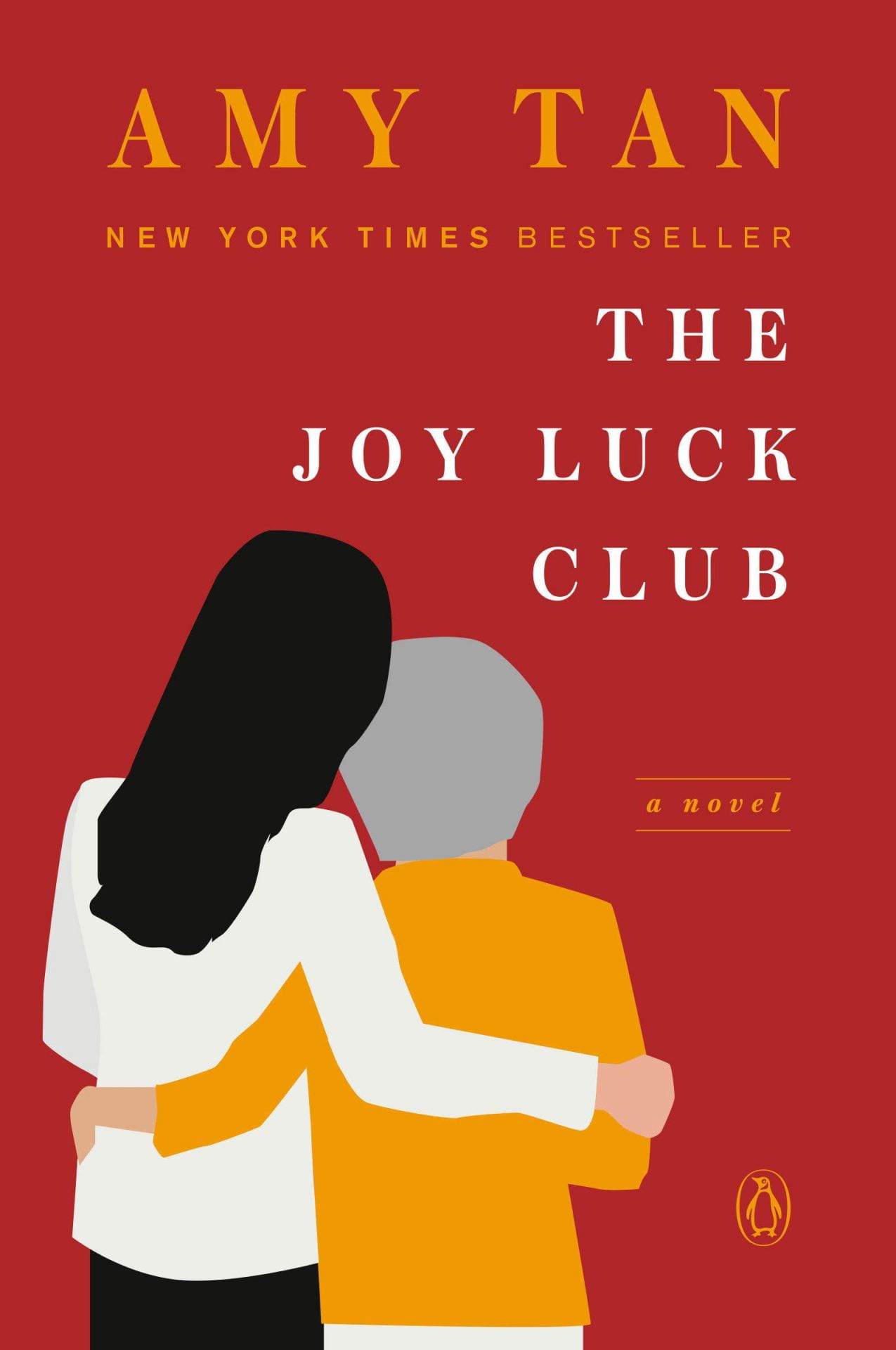Having graduated just this past May, Brittany Tian is our newest alum to be interviewed in the spring newsletter. She will be starting medical school in the fall. Before she begins graduate school, we asked her to reflect on what led to her majoring in both English and Biology, as well as how her interests in literature and science have influenced each other over the last four years. We also inquired about some of her favorite genres to read and write in, a university class that transformed her perspective, her experience as an undergraduate tutor on campus, and the impact that her B.A. in English may have on her career as a doctor.
What is one book that you read in your pre-college years that inspired you to major in English? Why?
I will always point towards Emily Brontë’s Wuthering Heights as a predominant reason for my decision to major in English. My first read of the novel occurred during my freshman year of high school and then I reread it during my senior year. While the novel itself appealed to my general love of tragic romance, I adored Brontë’s writing style and character development. She created a story, almost 150 years before my birth, that spoke to a teenage girl in the 21st century. That transfer of writing and emotion made me realize the full impact of English literature. I could not help but continue this exploration as I began my college career.
You just (this past May) graduated with degrees in both Biology and English–major congratulations! I’m wondering if you ever found that your studies in the sciences enhanced your study/appreciation of literature and/or vice versa. If so, how?
I think my studies in the sciences helped me appreciate the emotionality and vulnerability that comes with literature in a deeper way. Biology, my specific field of study, is quite straightforward at its core. There are still a plethora of unknowns in our understanding of life and how it functions, but we are discovering new things every day that informs our current knowledge. This knowledge, however, remains relatively void of emotion. I find that my appreciation for English has only grown when I am able to compare it to the apathy that is often associated with the sciences. On the other hand, I am able to find some joy in the ambiguity that Biology tries to eliminate within the world. It counters English in this way, but I think they complement nicely as subjects.
What is, currently, one of your favorite genres of literature to read? Is there a particular text in that genre that you can recommend? I know that you are also a creative writer. In what genre do you most enjoy writing creatively? Why?
While Victorian literature will always be a favorite literary genre of mine, I have become incredibly interested in literary works that delve into the concepts of gender identity, sexual orientation, and cultural understanding. We live in a world that is growing more accepting of true expression, but it can be a difficult concept to fully empathize within areas that physically lack this diversity. Literature is informative just as much as it is creative, so I have loved reading works that allow me to explore identities different than my own. Jeffrey Eugenides’s Middlesex is an amazing novel that considers intersexuality and the concept of gender identity itself. Amy Tan’s The Joy Luck Club speaks to my own experiences as a Chinese-American daughter in a way that is hard to verbalize at times. Given my emotions after reading works like these, I have tried to creatively write about my personal experiences being Asian American and growing up in the South. It is a somewhat unique experience, but I enjoy the vulnerability that comes from writing from this mindset.
What was one literature and/or creative writing course you took at the University of Arkansas that significantly changed the way you see the world? How exactly did it re-shape your point of view?
My first English course at the University of Arkansas was World Literature I with Dr. Robert Madison. While I understand that this is often a required class for English majors, it was one of my first experiences with literature outside of Europe and North America. The themes and symbolism that exist in these non-Western countries helped illuminate the universalizing nature of literature. We see the same concepts appear throughout the course of the written language, regardless of their origins and time periods. It really opened my eyes to the cohesion that we find in storytelling and “English” as a whole.
You tutored for the Writing & Communication Studio while you were an undergraduate. What most surprised you about that experience, which I assume allowed you more of an instructor’s perspective on writing while you were still an undergraduate?
During my time as a writing tutor, I was able to recognize the wide range of English understanding that exists among students. Individuals interpret texts to such varying degrees that it is undoubtedly surprising at times. Working with students opened my eyes to the fluidity that comes with literature, rhetorical analysis, and even research writing. In short, my experience tutoring offered a diversity of interpretations for texts during my own reading and allowed me to understand the degree of ambiguity that exists in the field of English.
You head to medical school this fall. (Congrats, again!) In what area of medicine do you plan to specialize, and do you expect your experience as an English major will influence your career as a doctor? If so, how?
As of right now, I hope to enter into the pediatrics field following medical school. My experience as an English major adds to my ability to communicate and empathize with people, both being necessary skills for a good physician. The goal of medicine is simply to help others, so I want to prioritize the patient and value their thoughts and comforts. English has allowed me to grow the empathy that is needed for these kinds of actions and value them to a deeper degree. As to why children, in particular, I find that reading and writing comprised such a large portion of my own childhood that I want to share it in some way with future generations. We need empathy in this world. Literature always functions as a means of understanding this.



